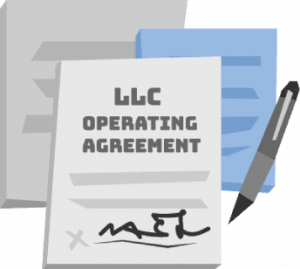How to Create an LLC in Maryland
Starting a limited liability company in Maryland involves three main steps: naming your business, choosing a Maryland registered agent, and filing state formation paperwork along with the $100 ($155 online) filing fee. But that’s not all. In order to keep your LLC legal and running smooth you’ll need to get an EIN, open business bank account, draw up an LLC operating agreement and more.
Our guide gives you step-by-step instructions on how to start, run, and maintain a Maryland LLC.

1. Name Your LLC
An LLC in Maryland needs a name. But before you go picking a name for your business, be aware that Maryland’s Department of Assessments & Taxation (SDAT) requires the name to be unique. Use SDAT’s Business Entity Search to make sure no other business is using your preferred business name.
You’ll also need to follow Maryland’s naming laws.
- Use an identifier like limited liability company, L.L.C., LLC., L.C. or LC.
- Not use words or identifiers like corp or Inc., that suggest your business is another type of entity.
If your preferred name is available, but you’re not ready to form your LLC, you can reserve it for 30 days by filing a Corporate Name Reservation form ($25) with SDAT.
Any name you operate your Maryland limited liability company under that isn’t your LLC’s legal name is a DBA (doing business as). Maryland calls DBAs trade names, and it costs $25 to get one. To register your Maryland DBA, you’ll need to file a Trade Name Application with the SDAT.
Note: DBAs need to be renewed every five years.
We show you how to get a Maryland DBA for your business.
Create Your Maryland LLC!


2. Get a Domain Name
A website domain that matches your business name will improve search engine visibility, driving more customers to your doorstep. Northwest makes it easy and can get you a domain instantly. In fact, all of our LLC customers get:
- One year of free domain registration.
- A customizable business website that’s kept safe with top-shelf SSL security.
- Up to 10 professional business email addresses.
- A business phone number with local area code.
- Friendly Corporate Guides®; have questions about a filing or form? We have answers!

3. Designate a Registered Agent
Maryland LLCs are required to have a Maryland registered agent listed on their state formation documents (Articles of Organization). Maryland calls them resident agents, but the terms are interchangeable. Your registered agent could be you, another Maryland resident, or a professional service like Northwest. Registered agent requirements are outlined in MD Corp & Assn Code § 7–205.
Maryland registered agents are required to:
- Keep regular business hours (9 AM to 5 PM) at a physical address (no P.O. Boxes) in Maryland.
- Accept correspondence from the Maryland SDAT and legal mail on behalf of your business.
Yes you can, but should you? Acting as your own registered agent means your name and address will become part of Maryland’s public record. You’re basically laying out a welcome mat for spammers and scammers to snatch your personal information. When you hire Northwest, we’ll list our name and business address on your LLC filings wherever allowed, helping to keep your personal info on lock.
Yes. To change your Maryland registered agent you’ll need to file a Resolution to Change Principal Office or Resident Agent form ($25) by mail or in person with Maryland’s SDAT.

4. Submit LLC Articles of Organization
Limited liability companies in Maryland are officially formed when your Maryland Articles of Organization are filed with the state. To successfully complete and submit the Articles of Organization, you’ll need to provide the following information:
- Company name. Include an indicator like LLC or limited liability company.
- Purpose. Most businesses keep this section general with a statement like: the purpose of this LLC is to engage in any lawful activity in the state of Maryland.
- LLC address. List your LLC’s Maryland street address.
- Resident agent and address. The name and address of your registered agent.
- Execution. The person authorized to sign and submit your LLC’s Articles of Organization. Hire Northwest and we’ll sign here.
- Resident agent signature. Signature of your registered agent.
- Return address. List the address you want to use for any correspondence from the state. This can be your registered agent’s address.
A limited liability company in Maryland has its own legal existence, separate from the people who formed it. If an LLC can’t pay a debt, its owners aren’t usually required to dip into their personal assets to pay it. This is called limited liability, and it’s the main benefit of starting an LLC. LLC owners also benefit from flexible management options, simple tax structure, and the credibility the LLC name can bring to a business.
Learn Why You Should Turn Your Sole Proprietorship into an LLC.
It all depends on how you file. Maryland LLC formation costs $100 if you file by mail or in-person. Filing online costs $155.
Your filing method determines how long it takes to form your Maryland LLC.
- Mail and in-person filings: 6-8 weeks (add $50 for expedited 10-day service)
- Online filings: 7-10 business days (add $325 for three-hour expedited service)
Note: If you’re in a hurry, you can hand-deliver your documents to the Maryland SDAT office and pay $425 for two-hour processing. You’ll need to be in line no later than 4:15 PM.
Maryland’s SDAT accepts filings by mail, in-person, and online. In-person filings can be submitted to a drop box in the lobby of the SDAT office.
Mail and in-person:
Department of Assessments and Taxation
301 W. Preston Street
Baltimore, MD 21201-2392
Online:
Maryland Business Express
The best way to keep your information out of the public eye is to hire a professional business formation company like Northwest. Find out how Northwest can help you live privately with an LLC.
You’re In Business With Your Maryland LLC. What's Next?

Write an LLC Operating Agreement
Your operating agreement acts as the foundation for how your LLC operates. Operating agreements are internal documents that should address things like the roles of members, revenue sharing, removing members, and even procedures for dissolving the LLC. In the event of a disagreement among LLC members, the operating agreement will act as the road map for resolving it.
Use our free Maryland LLC operating agreement template or hire a lawyer to draw one up for you.
No. Maryland doesn’t legally require an LLC operating agreement, but it’s just good business practice to draw one up.
No, but you should draw one up anyway. That’s because you’ll likely need an operating agreement to open a business bank account, which is an important step in keeping your personal and business finances separate, helping to maintain your LLC’s limited liability.

Get an EIN, Bank Account & Funding
One of the benefits of registering your business as an LLC is the separation it creates between you and your business. If you don’t keep your business finances separate from your personal finances, however, a court could find that your business is not actually separate from you. Opening a business bank account for your LLC is the best way to keep your finances separate.
Easy! Just hire Northwest, and we’ll get your EIN for you. You can also get an EIN from the IRS for free. Filing online is fastest, but you’ll need to file by mail if you don’t have a Social Security number.
Banks have different requirements for opening business accounts, but here’s what you’ll most likely need in order to open a business bank account:
- A copy of your Maryland Articles of Organization
- Your LLC’s EIN
- LLC operating agreement
- LLC Resolution to Open a Bank Account (if your LLC has multiple members)
Now that you’ve opened a bank account for your LLC, its time to fund the business. The most simple way to fund the LLC is for each LLC member to make an initial financial contribution to the LLC’s bank account. The percentage of the business that each member of the LLC owns can be reflected and recorded on the membership certificate. For example, if a two member LLC has each member contribute $25,000, they’d each have a 50% membership interest in the LLC.

File Taxes & Reports
You’ve got your LLC, your bank account and EIN, what more do you need to run a business? A lot more, that’s what.
- Annual reports: Maryland LLCs must file an annual report with SDAT by April 15th. With a base fee of $300, the report isn’t cheap. If you are late in filing your annual report, Maryland will penalize your LLC (penalties range from $30 to $500), and your LLC may even lose it’s good standing or be dissolved by the state. You’ll never miss a filing when you hire us to file your annual report for you.
- Maryland Personal Property Tax: If your LLC owns, leases, or uses personal property in the state or has a trader’s license (required for buying and re-selling goods), you will need to submit a Maryland Personal Property Tax Return with your annual report and pay the applicable personal property tax. Your Business Personal Property Taxes will be determined by the value of your business property and the county (or counties) in Maryland where you do business.
Yes. Annual reports are due to Maryland’s SDAT no later than April 15th. Late filings may incur fines or dissolution of the LLC by the state.
Maryland LLCs are treated, by default, as pass-through entities. This means that the LLC doesn’t pay taxes, but rather the profits from the business pass-through to the members, who then report their share of the profits on their personal tax filings. LLCs are also subject to the federal self-employment tax rate (15.3%). LLCs can also elect S-Corp or C-Corp status.
Learn all about S-Corp vs LLC tax designation.
*This is informational commentary, not advice. This information is intended strictly for informational purposes and does not constitute legal advice or a substitute for legal counsel. This information is not intended to create, nor does your receipt, viewing, or use of it constitute, an attorney-client relationship. More information is available in our Terms of Service.
Ready to Start an LLC in Maryland?







